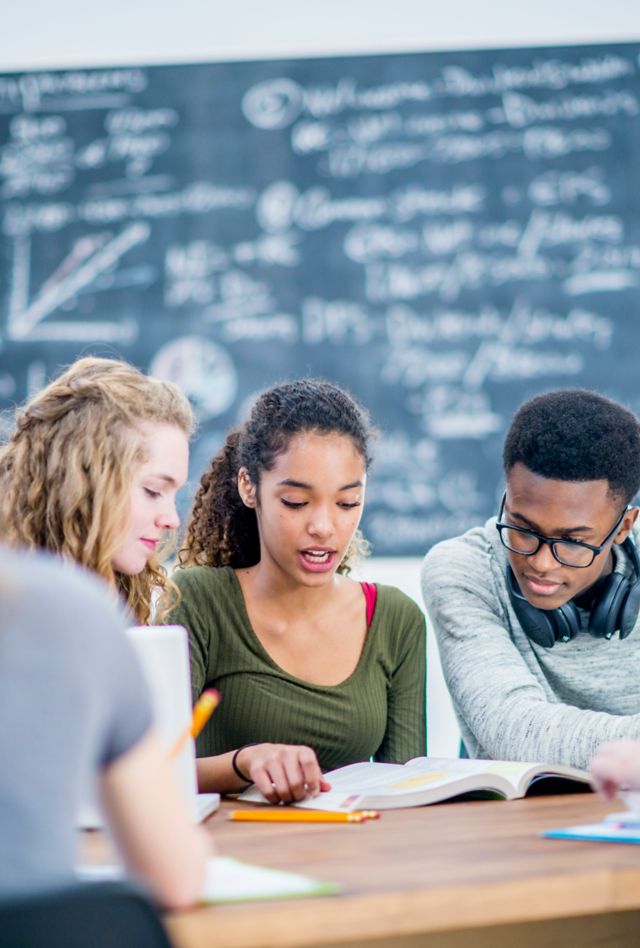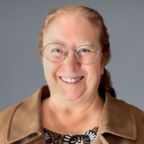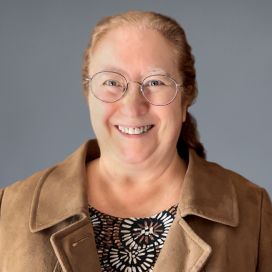Youth & Teen Math Mindset Study

Problem
Youth and teens need more support to succeed in math.
Research shows that math is a gateway to upward mobility in the United States. However, many Black and Latinx students and students from low-income communities lack the support they need to develop a positive math mindset, a sense of self-efficacy, and a sense of belonging among math learners. To advance math proficiency for all students, decision-makers must better understand student views about math and experiences studying math.
Solution
NORC’s surveys brought youth and teen voices to the forefront.
To capture teen perspectives, NORC at the University of Chicago surveyed a nationally representative sample of teens aged 13-17 in 2022 using NORC’s AmeriSpeak® Teen Panel. We oversampled Black and Latinx teens and teens living in states of special interest to the Gates Foundation (California, Florida, New York, Texas, and Washington). We also surveyed a subsample of parents of teen participants to explore how parents’ beliefs about math may influence their children. In 2023, NORC expanded the study’s reach by adding a representative sample of youth aged 10-12 to the survey population. The second survey oversampled for youth and teens who identified as Black or Latinx and for those living in the states of interest (California, Florida, New York, and Texas).
Result
Insights from the survey will promote math progress for all students.
NORC’s survey analyses identified key differences in teens’ math mindsets, identities, experiences studying math, and course-taking behaviors, by gender, race and ethnicity, grade level, and socioeconomic status.
Findings from the 2022 survey included the following:
- More male teens than female teens reported being good at math and comfortable asking math class questions.
- More females than males reported getting help with math outside of school and passing last year’s math course.
- More white teens than teens in other racial and ethnic groups reported passing their math course last year and indicated strong parental involvement.
- More teens in the survey group with high socioeconomic status (SES) reported passing math last year and taking AP or honors courses than those in the lower SES groups.
Findings from the 2023 survey included the following:
- Students who reported having positive experiences studying math and parental support were more likely to have higher grades in math.
- Most youth and teens reported feeling supported by their teachers and peers in math class but less than half reported feeling comfortable in math class.
- Having a positive motivation for math was strongly correlated with higher grades in math. This included enjoying learning math, believing in one’s math abilities, persisting even when math gets hard, and believing math plays an important role in one’s life.
- More male than female youth and teens reported enjoying learning math, and fewer Black youth reported enjoying math.
- About one-half of youth and teens reported being good at math, with more male than female youth believing they are good at math, and more AAPI youth than other groups believing they are good at math.
- Most youth and teens believe they can be good at math if they work hard, with more male than female youth and teens believing they can be good at math through hard work. At the same time, most youth and teens believe that some people are naturally good at math. Some youth (about one-half) and teens (about one-third) believe they can change how good they are at math.
- Over half of youth and teens reported that their teachers connect math to the real world weekly and almost half connect math to students’ interests at least monthly.
- Less than half of youth and teens reported that their teachers have them engage in different types of collaborative learning at least weekly (such as working together to solve problems, talking with each other, sharing ideas about math, and explaining their thinking).
- About half of youth and one-third of teens reported spending most of their time in math doing worksheets. About half of youth and teens reported engaging in hands-on activities at least once a week.
- Most youth and teens reported having access to math tutoring in school and outside of school. However, fewer Hispanic youth and teens reported having access to tutoring in or outside of school.
Principal Investigator
Related Tags
Project Leads
-
Claudia A. Gentile
Senior FellowPrincipal Investigator & Senior Staff -
Will Fisher
Research ScientistAnalysis Lead
Resources
Video
Examining Students’ Attitudes & Views about Math
Math is more than just numbers—it's a gateway to upward mobility and a key to future success. Yet, many Black and Latinx students and students from low-income communities face significant barriers to excel in math.
Join NORC research scientist Eric Brown as he discusses the Youth & Teen Math Mindset study and what we learned about students’ attitudes toward math, their math abilities, and their classroom experiences.










